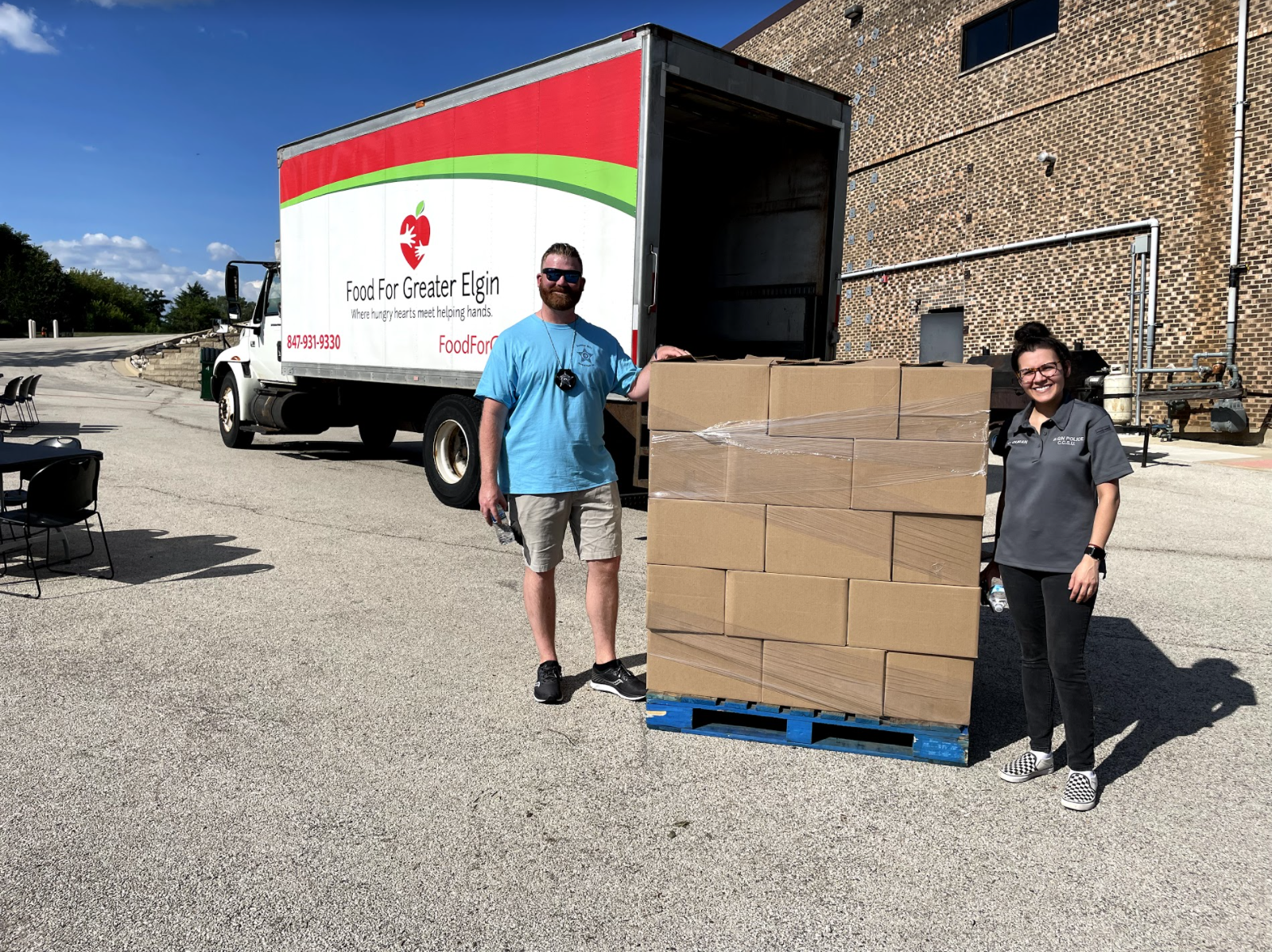
We are big into making adjustments at Food for Greater Elgin.
Yesterday, just before we were to open our doors to guests with disabilities, the clouds were stunningly black above us. With a few flashes of lightning to the north, we made the quick decision to get everybody inside: people with disabilities in one room, those with reservations in another, and guests without reservations in the conference room and hallway. The storm passed, we played it safe, no one was hurt, and everyone was most understanding–even if they were not in their preferred place in line.
There have been other adjustments as well. Construction has begun on the parking lot. With 30 or so contractors involved, what happens when depends upon other work, progress, and weather. People are working hard, our guests are understanding, and the chaos will get worse before it gets better.
While our busiest months were last fall, we also had a surprising surge of pantry shoppers in March. Then came April and the federal stimulus checks, and demand at our pantry (and every pantry throughout the Northern Illinois Food Bank Region) dropped by about 10% overnight. While it might have made more fiscal sense to not buy groceries with a stimulus check, the temptation to stop getting food from us, to stop feeling “poor,” was too much.
Then came July, and the beginning of the Advance Child Tax Credits (where parents below a certain level of income who fit particular requirements can get up to $150/child each month), and we had virtually no impact from those coming to the pantry, unlike what I was expecting. It did have an effect in low-income neighborhoods, where school-based SNAP debit cards are popular, and new requirements for registration evoked fear from many residents. The number of households served rose slightly, the number of individuals in those families declined–perhaps fewer families with children?
And then came August: In our first week, the number of households shopping rose by over 10%. I don’t know why. I expect we will see another bump up in September, when the supplemental unemployment benefits end.
What do I make of all this?
- National policy and money has a huge impact upon our lives. What Washington does is not far away, it’s up close and personal.
- National decisions have local impact.
- The effect of national food policies on local food pantries depends upon the particular mix of people whom the pantry serves. Our people’s lives were strongly shaped by some policies, and not by others.
- At the end of the day: we adjust, readjust, and adjust again; trying to get ahead of the curve and do the best we can to serve people in need.
Thank you for your support. In these times of change, your continued support is especially vital!
Michael